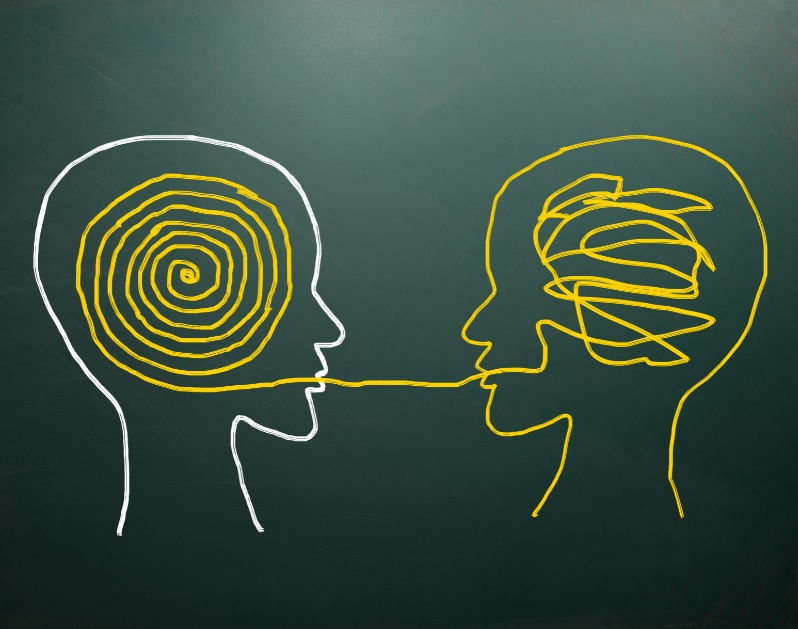Why Philosophers Write So Complicated
As I have been heavily involved with the subject of philosophy myself for a number of years now, I have noticed that a broad section of philosophers do not necessarily express themselves in a way that can be clearly explained. Why this is so, we will look at in this article in an attempt to explain.
There are three different reasons for the assumption that philosophers do not express themselves clearly. The expression of complex thoughts and ideas, requires correspondingly complex language, depending on the era and region thoughts and language differ greatly from their own and lastly it could be said that philosophers use a kind of technical language.
Since each of these reasons needs a little more attention, we will address each one individually.
Cultural and epochal differences give the impression of unclear expression
With most Western philosophers, there is not too much interpretive difficulty as to the meaning of their words.
However, as soon as philosophers talk about philosophies that are culturally rather foreign to us, we often do not understand exactly what is meant. This is because, for example, people in the Far East or in ancient Greece have completely different ways of thinking and speaking than we modern Europeans. Therefore, the philosophers do not express themselves unclearly, we just lack the understanding to understand the spoken at first go.
For example, if you study Buddhism or Daoism more, there can be very big problems of understanding at the beginning. For us in the West, something that has a present must also have a past and a future. So we see that our universe arises from a big bang and as a result will also come to a standstill at some point. In Daoism, however, existence as such has always existed. Existence itself is the great Dao that has always existed - the eternal force of nature.
As you can quickly see here, it can quickly become abstract when you deal with new philosophical approaches. However, this does not necessarily mean that philosophers do not express themselves clearly, but that you yourself do not know what to do with the terms - yet. In order to understand more content from the words of the philosophers, one must deal more with the matter to be able to better understand and fathom the incomprehensible.
Philosophical concepts often seem abstract
Because there is such a large number of philosophies, there is of course also an immense amount of philosophical words. Often there is a multitude of words that describe the same or something very similar.
Thus the "I" can be called colloquially also ego whereby the ego is represented in most philosophies with the persona. However, the persona is only the roles that we assume within society. Whereas the persona in this case would not be the "I" which many philosophers would call soul or spirit. The persona is rather a mask or a costume to which we attribute the attributes for which our fellow men evaluate us.
Here again it is noticeable that it can become very complex very fast. Since people have been thinking about the big questions of life not only since yesterday and not only in one place, there was of course a lot of time and many possibilities to create several names for one and the same thing. This sheer volume of terms contributes to a good part of the confusion.
So it is more or less as if philosophers use a kind of technical language (also called technolect). To make matters worse, this technical language is not universal, but is often used differently from philosophy to philosophy - and also partly from philosopher to philosopher of the same philosophical outlook.
From this results, by the way also often, the wrong assumptions philosophers could be crazy. This topic and which philosophers were actually crazy treated Simon in this article.
Life is complex and an attempt at explanation therefore also
In addition to the words and concepts that can confuse you, life itself is also very complex. So to explain processes, or the meaning of the processes, you sometimes need a change of your own point of view.
To put it another way, if you try to teach stochastics to a first grader, you're very likely to get a questioning look (pun unintended). You have to start with basic arithmetic and go from there until you reach a point where you have enough understanding to learn the actual subject.

The same is true for philosophy, of course. If someone is to understand what an ego death is or how it comes about, one must first learn what the ego is, why it is considered superfluous or useless in some philosophies, and so on. Until you get to the point where you understand what that means, you're going to have a lot of questions. Very much will seem like an imprecise description. But as soon as you have built up an understanding big enough to understand the ideas of a philosophy, the way it is expressed will no longer seem so imprecise.
Own opinion on the subject
As with all subjects, it is also in philosophy: At the beginning you understand only little or very incompletely what is meant. However, you usually feel already at the beginning that even if you do not fully understand what is meant, there is something to what is said.
The longer you then deal with the matter, the more understandable what is said becomes. So if you don't understand everything your favorite philosopher has to say at first, don't hang your head. In times of the Internet, you can google the individual words or terms that you do not understand.
Alternatively, there is also an endless amount of channels on YouTube that have an explanatory video on almost any topic you can think of.
So the next time you do not understand something philosophical or the philosopher is too unclear. Then try to deal a little more with the heard and I am sure that what the philosophers say slowly but surely, piece by piece, becomes more understandable.
Another great method is to exchange ideas with like-minded people. You are welcome to write to me and Simon and exchange ideas with us.
Did you like this article? You can let us inform you about new articles:







